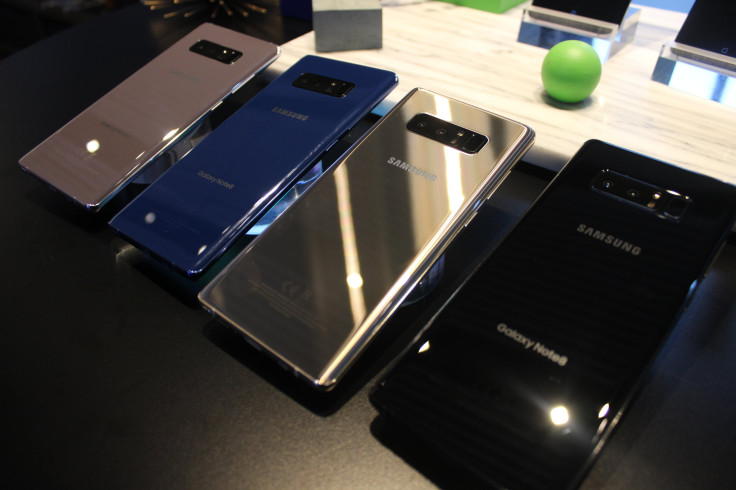Samsung Galaxy S9 May Feature iPhone X Face ID Rival

Samsung may be looking to take on the iPhone X in 2018 by introducing a 3D image mapping sensor to the front camera of the Galaxy S9, tech informant, Ice Universe Tweeted Thursday. If true, this could indicate Samsung plans to make its facial recognition a lot more like Apple’s.
While Samsung released the Galaxy S8 and Galaxy Note 8 with Face Unlock and iris scanning, the features have proven not be the safest biometrics security measures. Meanwhile, Apple claims its Face ID feature on the iPhone X has a one in a million chance of being spoofed. This claim hasn’t yet been tested as Apple has so refrained from allowing the press to share official opinions on the device with several weeks left until its market launch. Critiques of Face ID may not become public until late October, ahead of the Nov. 3 launch for the iPhone X.
Reports have indicated that hardware rivals may have to develop their own technology for 3D image mapping in order to not infringe on Apple patents in the iPhone X. In addition to news of a 3D sensor being developed by Samsung, the manufacturer also recently announced a new high-end camera sensor, which could potentially be used in a device like the Galaxy S9. The ISOCELL Slim 2X7 sensor supports lenses up to 24-megapixels, though they have not been connected to any 3D mapping technology.
Overall, 2018 devices may be in heavy competition for new and improved features. While the Galaxy S9 is currently rumored to feature a rear-facing fingerprint sensor, similar to the Galaxy S8 and Galaxy Note 8, the Galaxy Note 9 may be the first to feature a display embedded fingerprint sensor. There is currently no word on whether a second generation iPhone X would include such a feature. Smartphone manufacturers across the industry have had issues implementing on-screen fingerprint sensors on their flagship devices. This resulted in several smartphones featuring edge-to-edge displays with no physical home button and rear-facing fingerprints sensors. However, Apple decided to remove the fingerprint sensor from the iPhone X, opting to have Face ID as its sole biometrics option.
Current reports indicate iPhone X production is slow, primarily due to issues with developing the 3D sensor for the device’s “True Depth” front-facing camera. Experts expect availability of the iPhone X may be minimal until about March 2018. It is likely the Galaxy S9 could launch in March of 2018 and release to market in April; however, no details have been confirmed by Samsung or Apple.
© Copyright IBTimes 2025. All rights reserved.




















